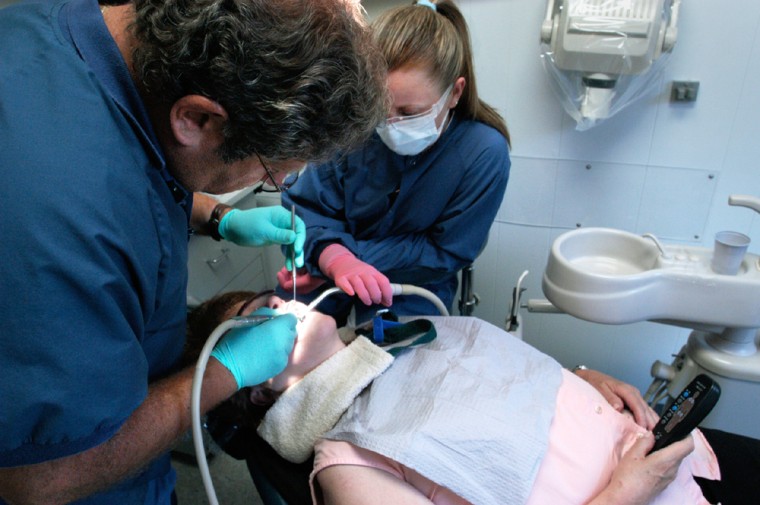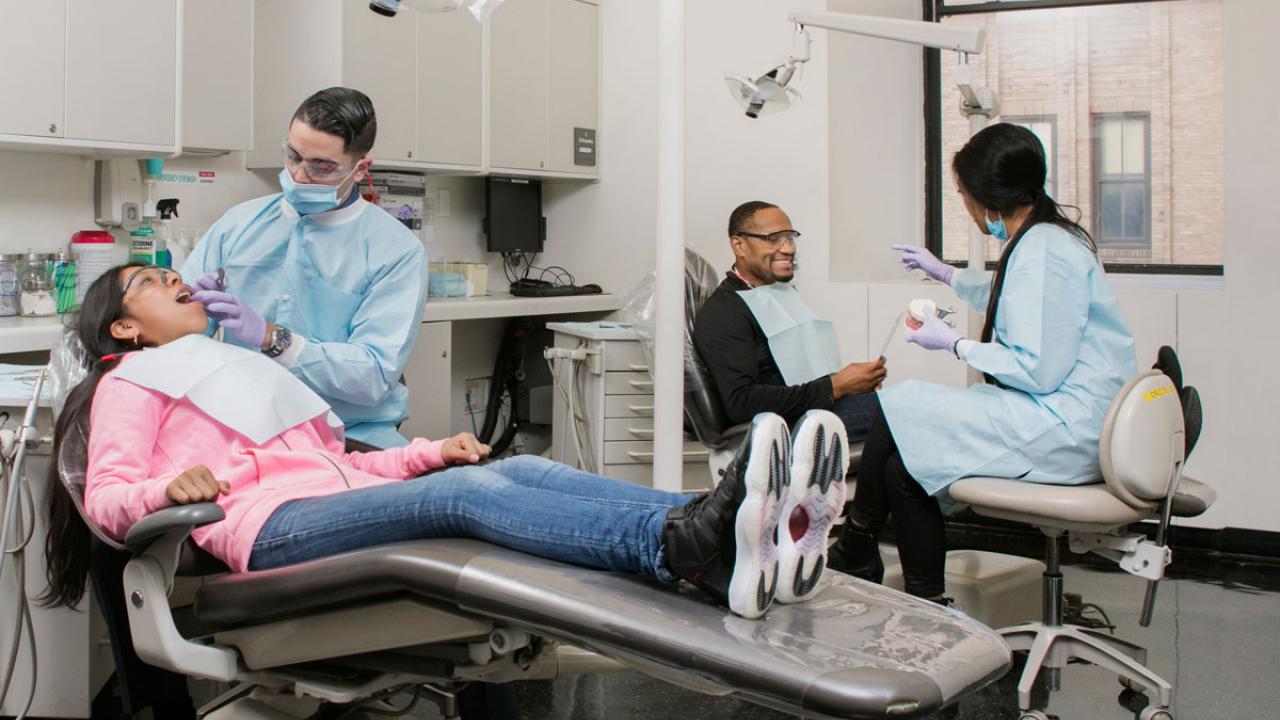Taking care of your teeth is hard work. It requires dedication and consistent effort to maintain good oral hygiene, which can include brushing twice a day, flossing regularly, using an antiseptic mouthwash, and visiting the dentist every six months for checkups.
Even when you do all these things it can still be difficult to keep your teeth healthy due to factors like genetics or lifestyle choices such as drinking coffee or smoking cigarettes.
Despite how hard it is to take proper care of your teeth there are many benefits that come with doing so. Not only does taking care of them prevent cavities and gum disease but also boosts our self-confidence by making us feel more attractive when we smile confidently with a set of pearly whites!
Teeth cleaning appointments at the dentist also helps remove plaque build-up that may have accumulated over time in places we wouldn’t normally reach while brushing alone – giving us even better results from our efforts at home!
While general dentistry covers most basic oral health needs such as fillings and routine cleanings, sometimes more specialized treatments are required for certain issues – this is where specialty dentistry comes into play!
Specialty dental practices focus on specific areas within the field and are often better equipped to deal with complex cases than general dentists – making them a valuable asset for those who require more advanced care. They’re also typically the people that can give you Invisalign.
Specialty dentistry may sound intimidating but it can be the difference between having a healthy mouth or not in some situations which is why it’s so important to have access to these services when needed. Throughout the course of this article, we’ll discuss why specialty dentistry is so crucial, what types of services it provides, and how to find the right specialist for your needs.
What is Regular Dentistry?
Regular dentistry is the practice of providing preventative oral health care and treatments to maintain healthy teeth, gums, and mouths. Regular dentists are typically general practitioners who provide a wide variety of services such as cleanings, fillings for cavities, crowns for damaged or decayed teeth, root canals when needed to treat infection in the pulp of a tooth, etc.
Some other common procedures performed by regular dentists include but are not limited to:
- Diagnosing conditions that may affect your mouth:
- This includes things like cavities, gum disease, and other oral health problems.
- Cleaning teeth:
- This involves removing plaque and tartar from the surface of your teeth in order to prevent bacteria buildup that can cause decay or infection.
- Filling cavities:
- When a cavity is found, dentists fill it with a special material such as composite resin or porcelain in order to restore the tooth’s structure.
- Extractions:
- In cases where decay has damaged the tooth beyond repair, dentists may need to extract it for safety reasons.
Regular dentistry also includes regular checkups which allow your dentist to monitor any changes in your mouth over time so they can catch serious issues before they become worse (e.g., if you have early stages of gum disease).
These visits are also great opportunities for patients to ask questions about their oral health and get advice on how best to take care of their mouths at home.
Regular dentists will also work with patients to find the best type of treatment for any specific issues they may have. For example, if a patient has a cavity that needs to be filled but is unable or unwilling to get it done surgically (e.g., due to fear or financial reasons), the dentist can suggest alternatives such as using fluoride treatments instead.
In addition, regular dentistry also encompasses preventative measures such as teaching patients how proper brushing and flossing techniques in order to help them maintain good oral hygiene over time.
This includes things like showing them what areas they should focus on when cleaning their teeth and explaining why these habits are so important for overall health – something that can’t always be addressed in just one dental visit alone.

What is Specialty Dentistry?
Specialty dentistry is an area of dental practice that focuses on more specific areas within the field. These specialists are typically trained to handle complex cases and provide advanced treatments for certain issues such as tooth extractions, root canals, or implants – procedures that would be too difficult or risky for regular dentists to perform.
Some common types of specialty dentistry include:
- Orthodontics:
- This type of dentist focuses on correcting the alignment and positioning of teeth through braces and other appliances.
- Prosthodontics:
- This type specializes in restoring missing teeth with artificial replacements such as bridges, crowns, implant-supported dentures, etc.
- Endodontics (root canal therapy):
- Endodontists specialize in treating problems related to the inner part (pulp)of a tooth including root canals.
- Periodontology/Gum Disease Treatment:
- Periodontists focus on diagnosing and treating gum disease which includes deep cleanings known as “scaling” and “root planing” as well as surgery if needed.
- Pediatric Dentistry:
- Pediatric Dentists specialize in providing care specifically tailored to children’s unique needs from infancy through their teenage years.
- Oral Pathology/Oral Medicine:
- This type of dentist specializes in diagnosing and treating diseases related to the mouth, teeth, salivary glands, jawbone, and other oral structures.
Specialty dentists may also specialize in cosmetic procedures such as veneers or whitening treatments which can help enhance a patient’s overall smile appearance if they are unhappy with it for any reason.
Although these types of procedures are not necessary for everyone they can be beneficial if a person wants more than just the basics when it comes to achieving their desired aesthetic.
There are some scenarios where a specialty dentist may be needed such as:
- Extraction of Impacted Teeth:
- This occurs when teeth have grown in at an angle and cannot come through the gums, requiring surgical removal.
- Treating Complex Cavities or Decay:
- When cavities reach a certain size they can become too complex for regular dentists to treat, so specialists would need to be called in.
- Implant Placement/Restoration of Dental Implants:
- Specialized training and equipment are required for the placement and restoration of dental implants which require precision work that only certain dentists are qualified to do.
- Jaw Surgery (Oral Maxillofacial Surgery):
- In cases where there’s misalignment with how one’s upper and lower jaw fit together due to structural issues, surgery may be needed; oral maxillofacial surgeons focus on these types of procedures as well as reconstructive facial surgeries.
- Treating TMJ Disorders:
- Temporomandibular joint (TMJ) disorders are caused by problems with the jaw joints and can lead to pain, clicking, or difficulty in opening and closing one’s mouth; specialists who focus on this area of dentistry can provide treatments such as splints or orthotics that help relieve symptoms.
Specialty dentistry is often more expensive than regular dental care but it’s important to remember why these services may be necessary – complex cases require advanced techniques that require specialized training which comes at a cost. That being said, having access to these types of services when needed is invaluable for those who need them.
Do You Ever Need to see a Specialty Dentist?
After reading the rest of this article, there’s a good chance that you understand how important specialty dentistry can be and why it’s necessary for certain situations. But when exactly do you need to see a specialist?
In general, if you’re experiencing any issues with your teeth or mouth that are beyond the scope of what a regular dentist can provide, then it may be time to look into seeing someone who specializes in that particular area.
It’s also important to note that not all dental procedures require specialized care – many times we just need our regular dentist for things like cleanings or fillings! That being said, if something more complex arises such as an extraction or implant placement then seeking out a specialist is essential for getting the best possible outcome from treatment.
There are also some scenarios where preventive visits with specialists may be beneficial such as orthodontist appointments every 6 months instead of once per year – this can help catch any potential problems early on before they become severe enough to warrant serious treatments down the line.
Additionally, those who have existing conditions like TMJ disorder might benefit from visiting an oral maxillofacial surgeon regularly (e.g., every few months) so they stay up-to-date on their progress and don’t miss out on opportunities for relief through different types of therapy or surgery.
Getting the Right Kind of Treatments
Ultimately, the decision to see a specialty dentist should be based on your individual needs and what type of treatments may be necessary in order to address them effectively. If you’re unsure if you need one then it’s always best to talk with your regular dentist first – they can provide an assessment and help determine whether seeing someone who specializes in that particular field would benefit you more than general care alone!
The dentist can be scary, and specialty dentists are even more intimidating. But if you’re in need of advanced care, specialty dentistry can be a lifesaver. Through this article, we’ve discussed why it’s so important to have access to these services when needed and what types of specialties are out there.




